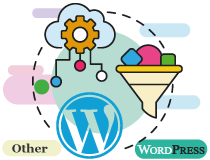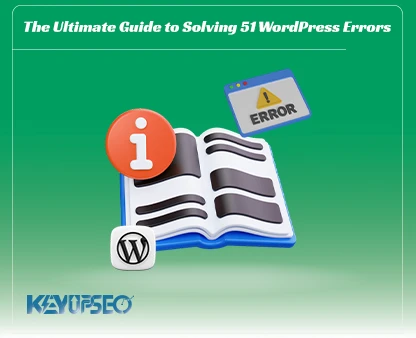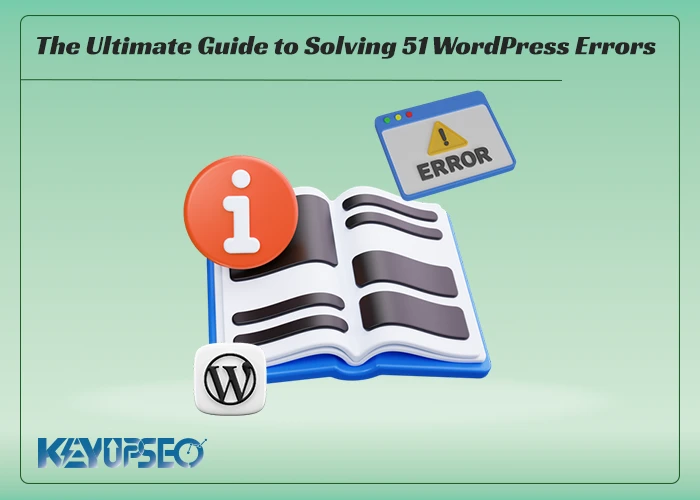
The Ultimate Guide to Solving 51 WordPress Errors
WordPress is one of the most accessible platforms for building websites, but even the most user-friendly tools can present challenges. Whether you're a beginner or seasoned user, encountering errors can be frustrating. Fortunately, you're not alone; many users have faced similar issues before you. In this guide, you'll discover 51 common WordPress mistakes and learn practical, step-by-step solutions to fix them and keep your site running smoothly.
Troubleshoot 51 frequent WordPress problems easily by identifying the root causes and applying quick fixes. Master the art of WordPress troubleshooting with this guide to enhance your site's performance without needing advanced technical skills or external help.
Before diving into any fixes, always remember to back up your website data. This simple precaution can save you from potential data loss and make recovery much easier.
Also, if you want your WordPress website to grow well in search results, Buy Google traffic can be very useful for improving the website's SEO.
Common WordPress Errors at a Glance
Here’s a quick overview of frequent WordPress issues users may encounter:
- Internal Server Error: A generic server-side issue.
- Syntax Error: Mistyped code causing a crash.
- Error Establishing a Database Connection: Failed link to the database.
- White Screen of Death: A blank page with no error message.
- Images Not Uploading: Upload process fails silently.
- Sidebar Displaying Below Content: Layout issues in themes.
- Invisible Text or Missing Buttons in Editor: UI glitches in the editor.
- Memory Exhausted Error: PHP memory limit exceeded.
- Unable to Access Admin Dashboard: Login or permission problems.
- Destination Folder Already Exists: Conflict during plugin/theme install.
- 403 Forbidden Error: Access denied to a resource.
- Unexpected Logout: Session ends without warning.
- Mixed Content Warning: HTTP and HTTPS content conflict.
- Media Upload Button Not Working: Button unresponsive in editor.
- Email Not Sending: WordPress fails to deliver emails.
- 502 Bad Gateway: Server received an invalid response.
- 503 Service Unavailable: Server temporarily overloaded or down.
- 504 Gateway Timeout: Server took too long to respond.
- Password Reset Not Working: Unable to recover login credentials.
- Missing Temporary Folder: Uploads fail due to missing directory.
- Pluggable.php Error: Conflict in core WordPress functions.
- Your Connection is Not Private: SSL certificate issues.
- HTTP Error During Image Upload: Upload fails with generic error.
- Failed to Load Resource: Missing or blocked assets.
- Upload Failed to Write File to Disk: Server can’t save uploaded files.
- Are You Sure You Want to Do This?: Action blocked due to nonce failure.
- 404 Error: Page not found.
- RSS Feed Error: Feed not displaying correctly.
- Maximum Execution Time Exceeded: Script runs too long.
- Scheduled Posts Not Publishing: Cron job failure.
- Site Contains Harmful Programs Warning: Security alert from browsers.
- Secure Connection Error: SSL handshake failure.
- Briefly Unavailable for Scheduled Maintenance: Site stuck in maintenance mode.
- Too Many Redirects: Infinite redirect loop.
- 429 Too Many Requests: Server rate limit exceeded.
- Incorrect Facebook Thumbnail: Wrong image shown when sharing.
- Failed to Open Stream: File access issue.
- 413 Request Entity Too Large: File size exceeds server limit.
- Disabling PHP Error Display: Hide error messages from users.
- Technical Difficulties Message: Generic error after update.
- Another Update in Process: Update lock prevents changes.
- Password Reset Error: Reset link not working.
- SSL Issues: Certificate or HTTPS problems.
- File and Folder Permission Errors: Incorrect access settings.
- Link Expired Error: Upload or action timeout.
- Site Not Updating Immediately: Cache or propagation delay.
- Googlebot Blocked from CSS/JS: SEO crawl issues.
- Login Page Refresh Loop: Redirect prevents login.
- Image Display Issues: Broken or missing visuals.
- Theme Preview Not Working
- Changes Not Saving in Customizer
If you are planning to build a WordPress website, you should be familiar with these issues. I suggest you read the article Best Ideas for WordPress Website before designing your website.
1. Internal Server Error (500)
This generic error occurs when the server fails to identify the source of a problem. It doesn’t point to a specific file or issue, making it tricky to diagnose. Common causes include corrupted .htaccess files, plugin conflicts, or exhausted PHP memory.
2. Syntax Error
Typically caused by incorrect or incomplete code added to WordPress files. A missing bracket, semicolon, or typo can trigger a PHP parse error, often pointing to the exact line in the file where the issue occurred.
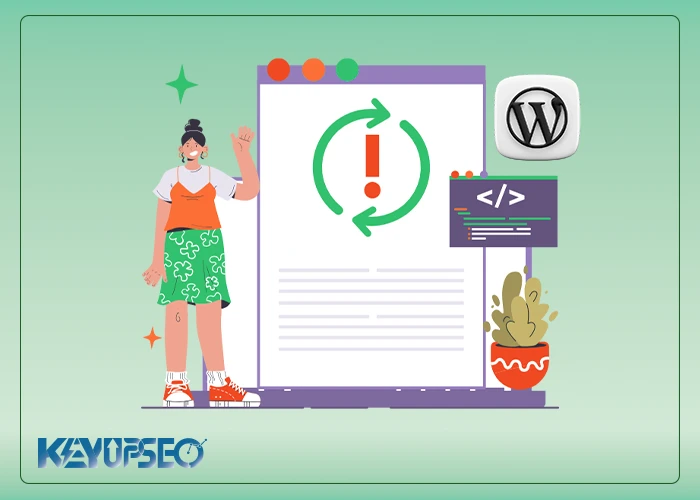
3. Error Establishing a Database Connection
This error occurs when WordPress is unable to connect to the database. It’s usually due to incorrect credentials in the wp-config.php file or an issue with the database server itself. Fortunately, it’s one of the easier issues to resolve.
4. White Screen of Death
Instead of an error message, users are faced with a blank, white screen. This can result from PHP memory limits being exceeded, faulty plugins, or server misconfigurations. Sometimes, the issue only affects specific pages.
5. Image Upload Issues
Images sometimes fail to display or upload properly due to permission errors or corrupted files. Missing thumbnails or broken gallery items often point to server-side restrictions or plugin conflicts.
6. Sidebar Appearing Below Content
A layout issue where the sidebar drops below the main content instead of appearing beside it. This is regularly caused by unclosed HTML tags or incorrect CSS widths in the theme’s design.
7. Missing Buttons or White Text in Editor
In the classic WordPress editor, users may notice missing buttons or white text due to JavaScript conflicts or corrupted TinyMCE files. Plugins that modify the editor can also contribute to this issue.
8. Memory Exhausted Error
When a plugin or script exceeds the allocated PHP memory, WordPress may display a fatal error. Increasing the memory limit in wp-config.php typically resolves the problem.
9. Unable to Access WordPress Dashboard
This issue often arises when login credentials are forgotten and password recovery via email is inaccessible. It can also result from faulty plugin installations, incorrect code injections, or even potential security breaches.
10. Destination Folder Already Exists
This installation error occurs when WordPress tries to extract a plugin or theme into a folder that already exists. Deleting the existing folder manually before reinstalling usually resolves the issue.
11. 403 Forbidden Error
This error indicates that server permissions are blocking access to a specific page. It may stem from incorrect file permissions, poorly coded security plugins, or misconfigured server settings.
12. Unexpected Logout Issue
WordPress uses cookies to verify login sessions. If the site URL doesn’t match the cookie settings, users may be logged out unexpectedly. Ensuring consistent URL configurations in wp-config.php can help fix this.
13. Mixed Content Warning
This warning appears when a site with SSL enabled loads resources over HTTP instead of HTTPS. It can affect SEO and user trust. Identifying and updating insecure URLs either manually or via plugins will resolve the issue.
14. “Add Media” Button Not Working
This button relies on JavaScript to open the media library. Conflicts with themes or plugins can break the script, especially if they inject faulty code into the admin area. Disabling problematic plugins or switching themes may help.
15. WordPress Not Sending Emails
If your site fails to deliver notifications or contact form messages, it’s likely due to hosting providers disabling the default PHP mail function to prevent abuse. Using SMTP plugins or third-party email services can resolve this.
Educational article: In the article How to choose the best hosting for your website, you can learn important parameters and how to check correctly for a safe choice.
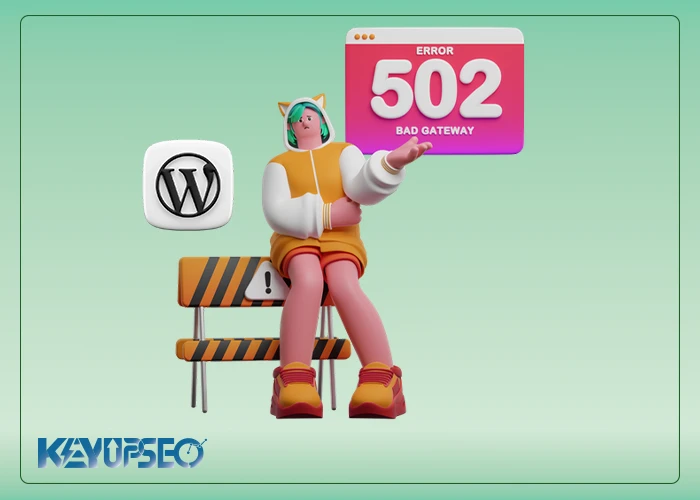
16. 502 Bad Gateway Error
This error occurs when a server takes too long to respond to a request. It can be caused by temporary glitches, high traffic, or faulty theme/plugin code. Restarting the server or checking error logs is a good starting point.
17. 503 Service Unavailable
This error suggests that the server is overloaded or a PHP script has failed. It may be due to plugin conflicts, theme issues, or brute force attacks. If the error doesn’t resolve automatically, manual debugging is required.
18. 504 Gateway Timeout
This timeout occurs when a proxy or firewall fails to establish a connection with the origin server. It’s common with services like Cloudflare or Sucuri. Reviewing firewall settings and server performance can help identify the cause.
19. Password Reset Not Working
This error occurs when WordPress fails to update user credentials in the database. It’s often caused by a hosting account exceeding its disk space limit, preventing new data from being written.
20. Missing a Temporary Folder
WordPress uses a temporary folder to store files during uploads. If this folder is missing or inaccessible, uploads will fail. Defining a custom temp directory in wp-config.php and creating it manually via FTP usually resolves the issue.
21. Pluggable.php Error
The pluggable.php file contains core WordPress functions. If a plugin or theme attempts to override these improperly, it can trigger a warning like “Cannot modify header information.” Depending on severity, the site may remain functional or become inaccessible.
22. Your Connection is Not Private
This browser warning appears on sites using HTTPS when SSL certificates are misconfigured or expired. It can damage user trust and reduce traffic. Diagnosing the exact cause often requires checking certificate validity and server settings.
23. HTTP Error During Image Upload
This generic error can appear when uploading media files. It’s often temporary, but persistent issues may stem from server limitations, plugin conflicts, or incorrect file permissions.
24. Failed to Load Resource
When WordPress attempts to load assets like images, scripts, or stylesheets, missing or broken URLs can trigger this error. Verifying file existence and correcting incorrect paths usually resolves it.
25. Upload: Failed to Write File to Disk
Incorrect folder permissions typically cause this error. If the server can’t write to a specific directory, uploads will fail. Adjusting file permissions via FTP or hosting control panel is the recommended fix.
26. Are You Sure You Want to Do This?
This error is linked to WordPress security tokens called nonces. If a theme or plugin misuses them, WordPress blocks the action. Updating or replacing the faulty component usually solves the issue.
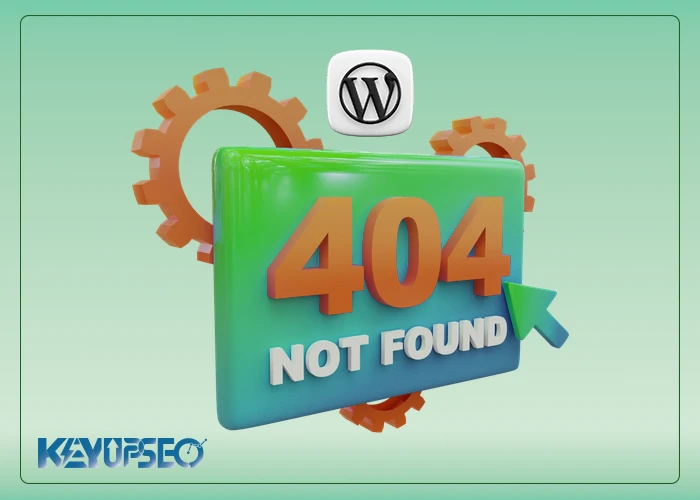
27. 404 Page Not Found
This error occurs when users try to access a page that doesn’t exist. It’s typically related to broken permalinks or deleted content. Resetting permalink settings often resolves the issue. Of course, this can be easily fixed with a plugin, and we have explained it in the 404page WordPress plugin article.
28. RSS Feed Errors
RSS feed issues often stem from malformed code or whitespace before the XML declaration. These errors can vary by browser and may include parsing failures or header modification warnings. Cleaning up theme files and validating feed output is essential.
Fixing RSS Feed Errors with a Plugin
To repair broken RSS feeds, install a plugin like “Fix My Feed RSS Repair.” After activation, navigate to the RSS Feed Fix section under Tools and click “Fix Feed.” Once resolved, validate your feed using a service like feedvalidator.org. Don’t forget to remove the plugin afterward to keep your site clean.
29. Fatal Error: Maximum Execution Time Exceeded
WordPress runs on PHP, which has a time limit for script execution to prevent server overload. If a script exceeds this limit, you’ll see this fatal error. Increasing the execution time via server settings or editing the .htaccess or php.ini file can resolve the issue.
30. Scheduled Posts Not Publishing
WordPress allows you to schedule posts for future publication. However, if scheduled posts fail to publish, it may be due to missed cron jobs or plugin conflicts. Using a plugin to manage cron tasks or switching to a reliable hosting provider can help.
31. This Site Ahead Contains Harmful Programs
This warning appears when search engines detect malicious code on your site. It often results from hacking or displaying ads from unreliable networks. Scan your site with a security plugin and remove suspicious scripts to restore trust.
32. Secure Connection Error
WordPress regularly checks for updates from WordPress.org. If your server fails to establish a secure connection, updates may be blocked. This is often due to misconfigured server settings or outdated SSL protocols.
33. Briefly Unavailable for Scheduled Maintenance
During updates, WordPress enters maintenance mode. If the update fails, the site may get stuck in this state. To fix it, delete the .maintenance file from your root directory via FTP, and ensure future updates are handled properly.
34. Too Many Redirects
This error occurs when redirect rules conflict, causing browsers to loop between pages. It’s often triggered by misconfigured plugins or incorrect URL settings. Clear your browser cache and review your site’s redirect settings to resolve it.
35. 429 Too Many Requests
This error is a server-side protection against excessive requests. It may be caused by bots, scripts, or misbehaving plugins. Identify and disable the source of the overload, and consider rate-limiting access to sensitive endpoints.
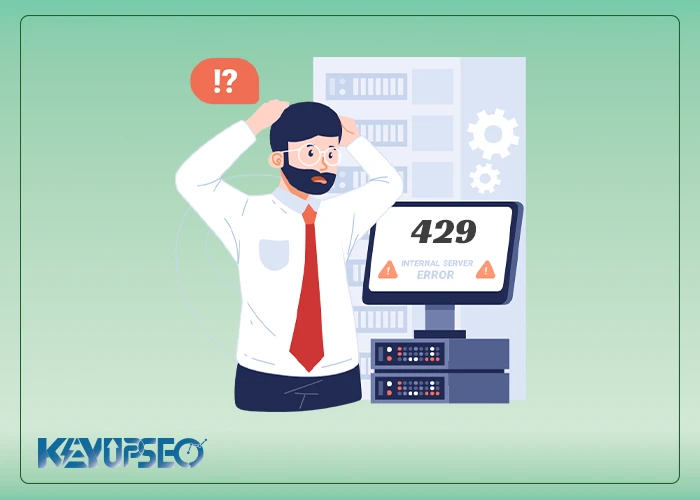
36. Incorrect Facebook Thumbnail
Facebook uses Open Graph tags to display thumbnails. If multiple images are listed or the main image is too small, the wrong thumbnail may appear. Use a plugin that manages Open Graph metadata and ensure your featured image meets Facebook’s size requirements.
37. Failed to Open Stream
This error means WordPress can’t access a required file. It may be due to missing files, incorrect paths, or permission issues. Check the file’s location, ensure proper permissions, and verify that the file exists on the server.
38. 413 Request Entity Too Large
This error occurs when a file exceeds the server’s upload limit. It’s common when uploading large themes, plugins, or media files. Adjusting the server’s php.ini or .htaccess settings to increase upload limits can resolve the issue.
39. Disabling PHP Error Display
Visible PHP warnings in the admin or frontend can disrupt user experience. While the site may still function, these messages can appear unprofessional. To hide them, set WP_DEBUG to false in wp-config.php and disable error reporting.
40. This Site is Experiencing Technical Difficulties
Introduced in WordPress 5.2, this error indicates a critical issue. WordPress sends an email to the admin with a recovery link. If you don’t receive the email, verify the admin email address and check your server’s mail configuration.
You can read the basic tutorial on activating recovery mode on WordPress at this link.
41. Another Update in Process
This message appears when a core update is already running and another is triggered. WordPress locks the update process in the database to prevent conflicts. If the lock doesn’t clear automatically, it can be removed manually via phpMyAdmin.
42. Password Reset Loop
If the login page keeps refreshing during a password reset, it may be due to insufficient disk space on the server. Freeing up space by deleting unnecessary files allows WordPress to write new data and complete the reset.
43. Common SSL Issues
Sites using HTTPS rely on valid SSL certificates. If a server falsely claims to support HTTPS, browsers may block access. Ensure your certificate is properly installed and configured to avoid warnings and maintain trust.
44. File and Folder Permissions Error
WordPress requires specific permissions to read and write files. Incorrect settings can prevent uploads or updates. Use FTP to set folder permissions to 755 and file permissions to 644 for optimal access control.
45. The Link You Followed Has Expired
This error typically appears when uploading large themes or plugins via the admin dashboard. It’s caused by low upload size or script timeout limits. Increasing upload_max_filesize and max_execution_time in server settings can fix it.
46. Site Not Updating Immediately
If recent changes aren’t visible, caching may be the culprit. Browser or plugin-based caches store page versions temporarily. Clearing the cache ensures that updates are reflected instantly across the site.
47. Googlebot Cannot Access CSS and JS Files
Search engines need access to CSS and JavaScript files to render pages accurately. Blocking these resources via robots.txt or .htaccess can harm SEO. Review these files and allow access to essential assets.
48. Login Page Redirect Loop
When trying to log in, users may be redirected back to the login page repeatedly. This is often due to incorrect site or home URLs in the WordPress settings, or conflicting redirect rules in .htaccess.
49. Common Image Handling Challenges on WordPress
Managing images on WordPress can be confusing for beginners. While the platform offers a robust media library and intuitive tools, some users may struggle with basic tasks like uploading, resizing, cropping, or organizing images into galleries. These aren’t system errors, but rather usability hurdles that can be overcome with a bit of practice.
-
Uploading Images
New users may find the upload process unclear, especially when dealing with different file formats or size restrictions. WordPress supports common formats like JPEG, PNG, and GIF. If an upload fails, it’s often due to file size limits or unsupported formats.
Tip: Check the maximum upload size in your hosting settings and use optimized images to avoid delays.
-
Resizing and Cropping
Editing images directly within WordPress is possible, but the interface may not be intuitive at first. Users can crop, rotate, and scale images using the built-in editor in the media library.
Tip: Use the “Edit Image” option under each media item to access these tools. For more advanced editing, consider integrating a plugin like “ImageMagick” or using external tools before uploading.
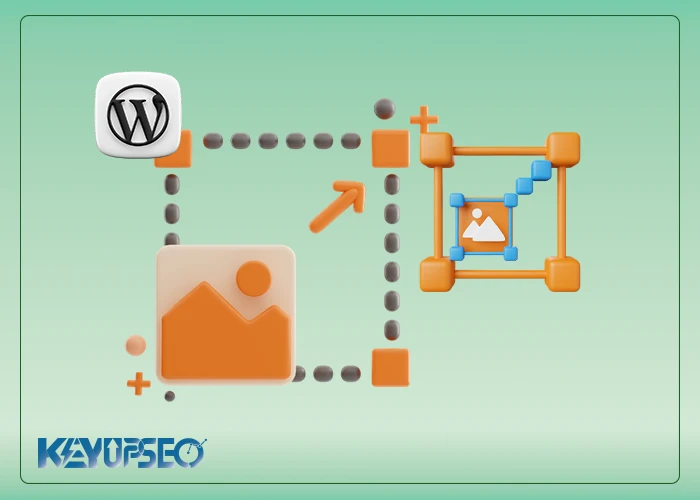
-
Organizing Images into Galleries
Creating image galleries is a powerful way to showcase visual content, but it can be tricky for those unfamiliar with WordPress blocks or shortcodes. The native gallery block allows users to select multiple images and arrange them in a grid or slideshow format.
Tip: Use the block editor to insert a gallery block, then customize layout, columns, and image links. For enhanced features, plugins like “Envira Gallery” or “NextGEN Gallery” offer more control.
-
Moving or Replacing Images
WordPress doesn’t allow direct file renaming or moving within the media library. If you need to replace an image, you must upload a new version and update the reference manually.
Tip: Use plugins like “Enable Media Replace” to swap images without breaking links or affecting layout.
50. Theme Preview Not Working
Sometimes, when trying to preview a newly installed theme, WordPress may show a blank page or an error instead of the expected layout. This issue often stems from theme compatibility problems, outdated PHP versions, or missing template files.
Tip: Ensure your theme supports your current WordPress version and PHP environment. Activate a default theme to test whether the issue is theme-specific.
In the article WordPress template creation steps, we have taught you the basic steps of creation and design.
51. Changes Not Saving in Customizer
If updates made in the WordPress Customizer aren’t saving or reflecting on the live site, it may be due to plugin conflicts, caching issues, or server restrictions.
Tip: Clear your site and browser cache, disable conflicting plugins, and check for JavaScript errors in the browser console.
Frequently Asked Questions About Common WordPress Errors
What Is an Internal Server Error?
An Internal Server Error, often displayed as “500 Internal Server Error,” is a generic message indicating that something has gone wrong on the server, but the server cannot pinpoint the exact issue. This error can be triggered by corrupted .htaccess files, exhausted PHP memory limits, or faulty plugins.
Solution: Try renaming the .htaccess file, increasing the PHP memory limit, or disabling recently added plugins to identify the source of the problem.
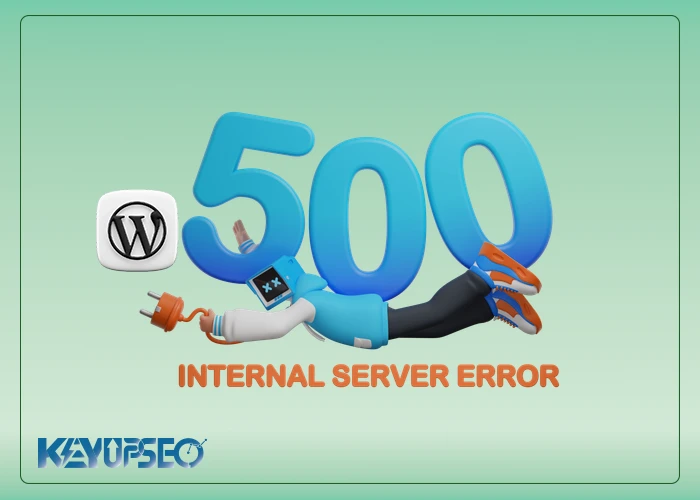
What Is a Syntax Error on WordPress?
A Syntax Error typically occurs when incorrect code is added to WordPress, often due to missing characters, misplaced brackets, or improper formatting. This usually happens when editing theme files or adding custom functions.
Solution: Review the code for typos or structural mistakes. Use a code editor with syntax highlighting to catch errors before saving changes.
What Does “Error Establishing a Database Connection” Mean?
This error appears when WordPress is unable to connect to the database. It can be caused by incorrect database credentials, a corrupted database, or issues with the database server itself.
Solution: Double-check the database name, username, password, and host in the wp-config.php file. If everything seems correct, contact your hosting provider to ensure the database server is running properly.
Release date : 5 September, 2025










